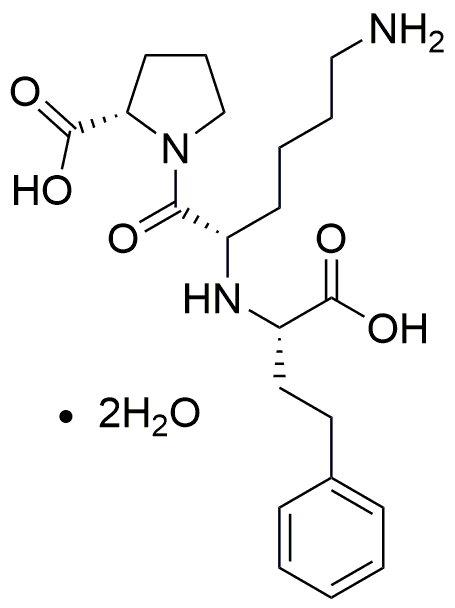Lisinopril dihydrate is widely utilized in research focused on:
- Hypertension Treatment: It is primarily used as an antihypertensive medication, helping to lower blood pressure in patients with hypertension, which is crucial for reducing the risk of heart disease and stroke.
- Heart Failure Management: This compound is effective in treating heart failure, improving survival rates and quality of life for patients by reducing the workload on the heart.
- Diabetic Kidney Disease: Lisinopril dihydrate is beneficial in protecting kidney function in diabetic patients, making it a vital component in managing diabetic nephropathy.
- Research in Cardiovascular Health: It is widely studied in clinical trials to understand its effects on cardiovascular health, providing valuable data that can lead to improved treatment protocols.
- Combination Therapies: This compound is often used in combination with other medications, enhancing therapeutic outcomes for various cardiovascular conditions while minimizing side effects compared to other treatments.
General Information
Properties
Safety and Regulations
Applications
Lisinopril dihydrate is widely utilized in research focused on:
- Hypertension Treatment: It is primarily used as an antihypertensive medication, helping to lower blood pressure in patients with hypertension, which is crucial for reducing the risk of heart disease and stroke.
- Heart Failure Management: This compound is effective in treating heart failure, improving survival rates and quality of life for patients by reducing the workload on the heart.
- Diabetic Kidney Disease: Lisinopril dihydrate is beneficial in protecting kidney function in diabetic patients, making it a vital component in managing diabetic nephropathy.
- Research in Cardiovascular Health: It is widely studied in clinical trials to understand its effects on cardiovascular health, providing valuable data that can lead to improved treatment protocols.
- Combination Therapies: This compound is often used in combination with other medications, enhancing therapeutic outcomes for various cardiovascular conditions while minimizing side effects compared to other treatments.
Documents
Safety Data Sheets (SDS)
The SDS provides comprehensive safety information on handling, storage, and disposal of the product.
Product Specification (PS)
The PS provides a comprehensive breakdown of the product’s properties, including chemical composition, physical state, purity, and storage requirements. It also details acceptable quality ranges and the product's intended applications.
Certificates of Analysis (COA)
Search for Certificates of Analysis (COA) by entering the products Lot Number. Lot and Batch Numbers can be found on a product’s label following the words ‘Lot’ or ‘Batch’.
*Catalog Number
*Lot Number
Certificates Of Origin (COO)
This COO confirms the country where the product was manufactured, and also details the materials and components used in it and whether it is derived from natural, synthetic, or other specific sources. This certificate may be required for customs, trade, and regulatory compliance.
*Catalog Number
*Lot Number
Safety Data Sheets (SDS)
The SDS provides comprehensive safety information on handling, storage, and disposal of the product.
DownloadProduct Specification (PS)
The PS provides a comprehensive breakdown of the product’s properties, including chemical composition, physical state, purity, and storage requirements. It also details acceptable quality ranges and the product's intended applications.
DownloadCertificates of Analysis (COA)
Search for Certificates of Analysis (COA) by entering the products Lot Number. Lot and Batch Numbers can be found on a product’s label following the words ‘Lot’ or ‘Batch’.
*Catalog Number
*Lot Number
Certificates Of Origin (COO)
This COO confirms the country where the product was manufactured, and also details the materials and components used in it and whether it is derived from natural, synthetic, or other specific sources. This certificate may be required for customs, trade, and regulatory compliance.


